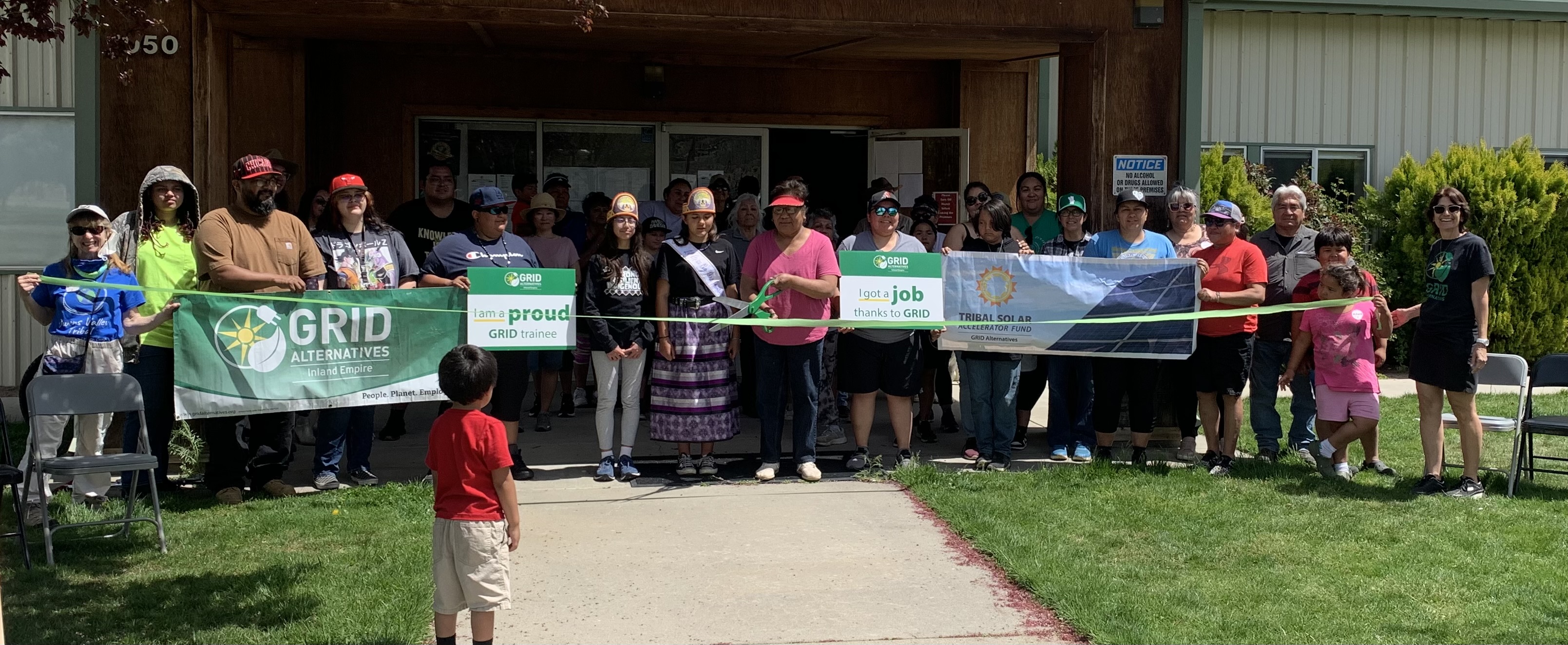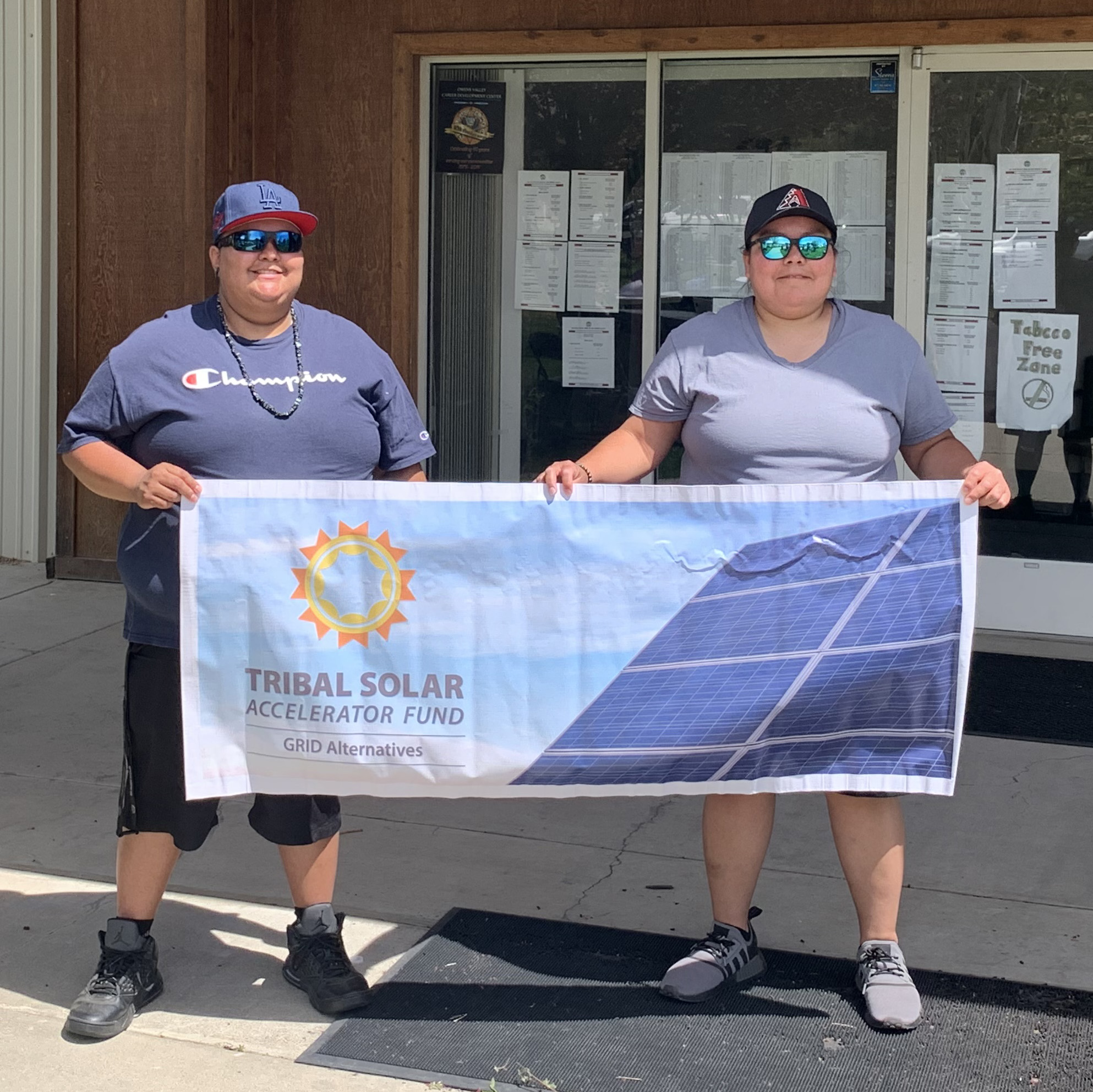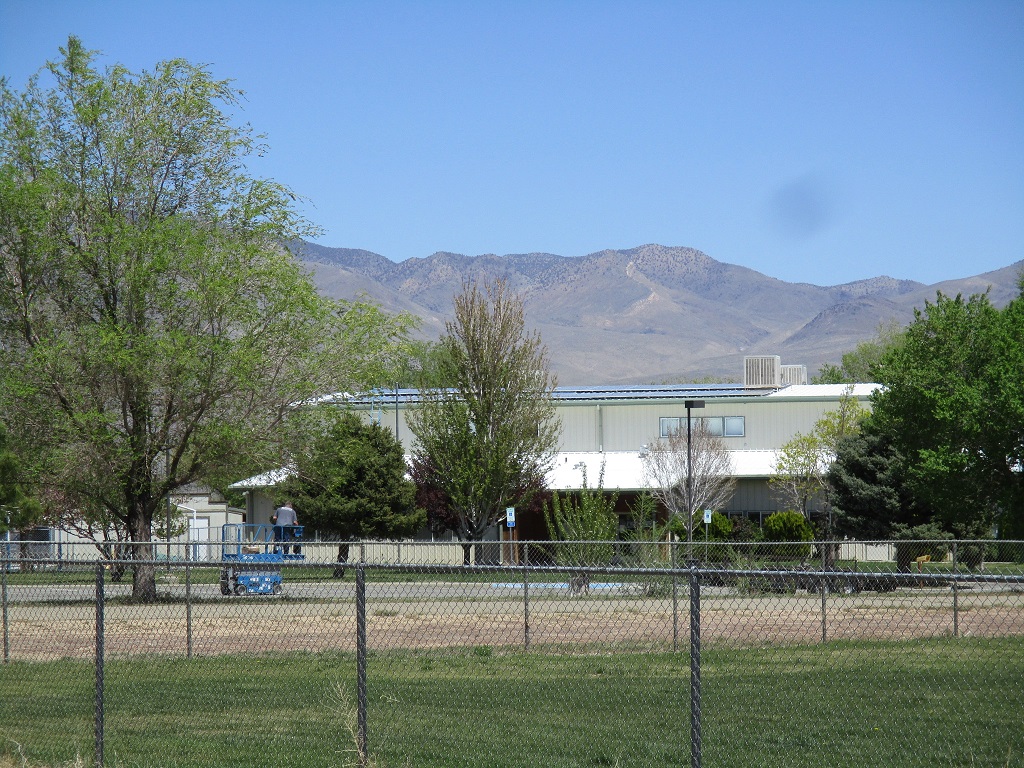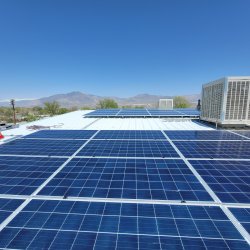The Big Pine Paiute Tribe of the Owens Valley enthusiastically observed Earth Day by welcoming the sun thanks to a grant from the GRID Alternatives (GRID) Tribal Solar Accelerator Fund (TSAF).
The Tribe is working with GRID Alternatives Inland Empire (GRID IE), a national non-profit, as well as local contractor Highpoint Solar, to install electricity-generating solar panels on the roof of the Tribe’s Alan Spoonhunter Memorial Gymnasium. The Gym is vital to the local Tribal community and is utilized throughout the year for various community activities and events and houses ongoing daycare and after-school educational programs.
Operating solar-generated electricity at this facility is expected to save the Tribe thousands of dollars annually in electricity costs.

Tribal Council member RoseAnne Moose cuts the ribbon
Tribal members joined the GRID IE’s staff for a ribbon-cutting at the Alan Spoonhunter Memorial Gymnasium on Sunday, April 23rd, 2023. Many Earth Day festivities happened in conjunction with celebrating this transition to solar power.

Tribal Trainees: Doree Richards and JoAnna Attakai
Two Tribal trainees gained hands-on experience installing solar on the Gym. Through education programs provided by GRID IE, trainees learn essential and transferable skills relevant to our green energy future.

Solar panels installed on the Alan Spoonhunter Memorial Gymnasium
The installation of solar on the Alan Spoonhunter Memorial Gymnasium is the second largest solar project on the Big Pine Indian Reservation. Three years ago, also thanks to the Tribal Solar Accelerator Fund, solar panels were installed to offset the Tribe’s domestic water system electricity usage.
Since 2010, the GRID Alternatives National Tribal Program has worked to help tribal communities across the United States achieve their renewable energy goals while trainig tribal members to enter the solar workforce. In 2018, GRID launched the Tribal Solar Accelerator Fund, a tribal-led philanthropic grantmaking program supporting new solar projects in tribal communities across the country. TSAF grants clearly focus on building renewable energy infrastructure, particularly new solar energy projects in tribal communities, that are feasible, cost-effective, and engage broad tribal community participation.

